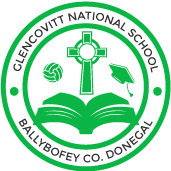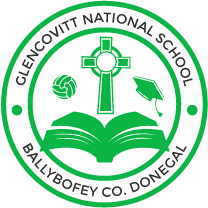ADVICE FOR PARENTS/GUARDIANS
Key facts for Parents:
COVID – 19 is a new illness that can affect the lungs and airways and is caused by a new virus called the Coronavirus.
Coronavirus is spread in sneeze or cough droplets. To infect you, it has to get from an infected person’s nose or mouth into your eyes, nose or mouth. This can be direct or indirect (on hands, objects, surfaces). If you come into close contact with someone who is shedding the virus and who is coughing or sneezing or if you touch – with your hands – surfaces or objects that someone who has the virus has coughed or sneezed on, and then touch your mouth, nose or eyes without having washed your hands thoroughly you may contract the virus. As COVID-19 is a new illness, we are still learning about how easily the virus spreads from person to person and how to control it, so it is important to keep up to date and make sure you are using the most up to date guidance available. This information is available from the following links:
- HSE-HPSC: https://www.hpsc.ie/a-z/respiratory/coronavirus/novelcoronavirus/
- HSE Hub: https://www2.hse.ie/coronavirus/
- Department of Health: https://www.gov.ie/en/news/7e0924-latest-updates-on-covid-19-coronavirus/
COVID-19 can be a mild or severe illness. Severe illness is much more common in older people (especially older than 70) and in people vulnerable for other reasons. Severe illness is much less common in children and young adults in good health. (See below)
The most common symptoms of Covid 19 are:
- Cough – this can be any kind of cough, usually dry but not always
- Fever – high temperature over 38 degrees Celsius
- Shortness of Breath
- Breathing Difficulties
- Lack of smell.
Symptomatic people appear to be most infectious for other people in the early days after symptoms begin. Infection can also spread from people in the day or two before they get symptoms and it can spread from some people who get an infection but have no symptoms or such mild symptoms that they take little notice of them (asymptomatic spread). People are no longer infectious for other people 14 days after they have developed symptoms.
Best practice for Parents and Pupils: In order to prevent the spread of the virus –
- if you have been in contact with someone who is displaying any COVID-19 symptoms
- If you have coughed or sneezed
- if you were in contact with someone who has a fever or respiratory symptoms (cough, shortness of breath, difficulty breathing)
- if you have been on public transport,
- if you have been in a crowd (especially an indoor crowd)
- if you have handled animals or animal waste
- If you move from one room to another room or from inside to outside areas
- If you have physical contact with a child from another group other than their own group
- if your hands are dirty
- when you arrive and leave buildings including your home or anyone else’s home
- After using the toilet
- Before having a cigarette or vaping before and after eating
- Before and after preparing food
- Before and after eating your own food – breaks/lunches
- After assisting a child to use the toilet or using the toilet themselves
- After contact with bodily fluids (runny nose, spit, vomit, blood, faeces)
- After cleaning tasks
You must – Wash your hands with soap and water (which is the best method to get rid of germs) and or use a hand sanitiser
You must -Practice good respiratory hygiene: that is, when coughing and sneezing,cover your mouth and nose with flexed elbow or tissue – discard tissue immediately into a closed binand clean your hands with alcohol-based hand rub or soap and water.
You must – Maintain social or physical distancing: that is, leave at least 2 metres (6feet) distance between yourself and other people where possible, particularly those who arecoughing, sneezing and have a fever.
Must not engage in handshaking or hugging
Must avoid touching your eyes, nose and mouth – if you touch your eyes, nose or mouth with your contaminated hands, you can transfer the virus from the surface to yourself Keep your hands in good condition. Moisturise them often. Any basic product that is not perfumed or coloured is OK.
The staff will complete multiple lessons on correct hygiene, lining up, the importance of hand sanitising , staying within their pods/bubbles etc. with the children during the first weeks back in school.
Role of Parents
It is important that parents have a clear understanding of the benefits and risk of childcare and thatit is not possible to guarantee that infection can be prevented in any setting either in a childcare centre, school or in the home.
The following are protocols that are put in place to safeguard the health and safety of each other. Parents are expected to abide by them and failure to do so may result in a parent being instructed to remove a child from the school building/yard, and or to leave the school premises themselves. If serious breaches of safety measures occur, the board and or the gardaí may be informed or called if needed.
Under no circumstances is a parent to bring a child to school if –
- if the child is exhibiting any symptoms of Covid 19-
- If the child has a temperature, is sneezing, coughing, who has been vomiting or has diahorrea.
- If a child has been outside of the country in the 14 days prior to August 27th, they are not to attend school but must isolate
- If the child has been in contact with any family member and or other person who has Covid.
Arrival and departure procedures for children and parents:
- Parents must arrive on time for leaving in and collecting their child.
- Only parents or carers who are well and have no symptoms of COVID-19 or who have served the required quarantine time of 14 days where advised are allowed to drop off and collect children.
- Any parent who is in a high risk category should not drop off or collect children in order to protect themselves. (This of course is at the discretion of the individual parent/carer/grandparent’s discretion)
- Parents/guardians are not to congregate in groups or stand around chatting.
- They must remain with their child until handover has taken place.
- Parents must ensure their child remains at their side at all times and that their child does not interact with other children.
- Under no circumstances are parents to linger after the child has been handed over but are to leave immediately.
- Home times will be staggered for classes from first to sixth- 2.20pm, 2.25pm and 2.30pm.
- Parents must wait outside the school in their cars and maintain social distancing in the evening time when waiting to collect a child. A parent must line up on the designated line/spot, maintaining social distancing and wait for their child.
- The junior and senior infants will go home at the normal time exiting through different doors where possible.
- All must leave the yard immediately after collection.
- No parent will be allowed within the school building.
- Should a matter of urgency arise for parents, they must phone the office and make an appointment or access.
- Access will only be permitted once their temperature has been taken and they have used the hand sanitiser. Once inside the school building they must maintain the required social distance and follow the directions of the principal/staff member.
- At arrival and departure times of children, social distancing is to be maintained by children and parents.
- Under no circumstances are parents and carers to gather in groups while waiting for the bell to sound
- Markings on the ground will note where a class can line up.
- Arrival and collection times will be staggered to avoid groups of parents/children congregating together
- Classes have been assigned to the fire exit door as entry/exit point of their classroom.
If a child appears unwell on entering the classroom, the child’s temperature will be taken and in the interests of the safety of the staff and the other children, the principal, class teacher/school secretary will contact the parent and ask the parent to take the child home immediately.
Daily Dismissal:
Junior & Senior Infants
First & Second Class
Third & Fourth
Fifth & Sixth
1:30 pm
2:20 pm
2:25 pm Yard must be cleared before class can be dismissed
2:30 pm Yard must be cleared before class can be dismissed
Parents and Uniforms:
- Children’s uniforms must be clean and washed regularly as a child may have coughed or sneezed into their sleeve as per coughing protocols.
- Parents should change their child’s uniform at least twice during the week. P.E. uniform must be washed after use.
Children who may have symptoms:
- Any child who is unwell with a fever, has a cold, influenza or infectious respiratory symptoms or is displaying any of the symptoms of coronavirus is to stay at home. The child’s parent should contact their GP and seek their guidance on referral for coronavirus testing.
- Temperature testing will take place as is currently the practice for children who may be unwell. Parents will be contacted immediately and must remove the child if the temperature is over 37.5 C.
Protocols if a child becomes unwell or presents as a suspected case of COVID- 19 while at school –
- The child will be brought to the Isolation Room by a staff member keeping at least 2 meters apart from the staff member.
- The parent will be immediately contacted and asked to come to the school to take the child either to the doctor or home. The handover will take place at the front door.
- A mask will be given to the child to wear until he/she is picked up. The secretary/principal/SNA/SET will remain with the child until he/she is picked up.
- Dedicated waste bins will be in use.
- The staff member caring for the child in isolation should wear personal protective equipment i.e. face mask, disposable apron and gloves.
- The child should be encouraged not to touch surfaces, people or any objects.
- Appropriate cleaning and disinfection of the isolation area and the child’s work station will be carried out immediately.
- The principal and the DLW will carry out an assessment of the incident which will form any part of follow up actions.
- The principal will inform the HSE in line with correct protocols.
If there is a suspected or confirmed case of COVID-19 in school.
- The school will be contacted by local Public Health staff of the HSE to discuss the case. They will identify people who have been in contact with the person and advise on any actions or precautions that should be taken.
- An assessment will be undertaken by HSE public health staff.
- Advice on the management of children and staff who came into contact with the person will be based on this assessment.
Symptomatic people should self-isolate and arrange to get tested for COVID-19. Confirmed COVID-19 cases should continue to self-isolate at home for a minimum of 14 days and should not return to school until they are advised that it is safe to do so. Close contacts of a confirmed case (their partner/family member should be notified and go home if at work and restrict their movements for 14 days. They should not attend work during that time.
Children in High Risk Groups: Parents should seek advice from their GP/Specialist if they think their child is in a high risk group. They must make an informed decision if it is safe for their child to return to school on August 24th. They should inform the principal of the advice given.
The Minister of Health recently announced that the flu vaccine will be available free to all children aged between 2 and 12 in the coming weeks. The vaccine will be given as drops on the tongue. We are awaiting further information on this and will let you know as soon as we get an update.
Use of Face masks:
- It is currently not recommended in Ireland for children under 13 to wear face masks as a mitigation strategy against the transmission of the coronavirus. It is currently the opinion of public health that their use, especially among young children, has the potential to cause more harm than good..
- If a parent wishes their child to wear a mask, this will be permitted. The use of a visor instead will be recommended.
Children’s learning spaces:
- All excess furniture will be removed from the classroom where possible so as to provide additional space.
- All staff will reconfigure their classrooms to ensure a one metre distance between pupils where possible. Pupils will be organised into pods within the classroom.
- Classes will be organised into bubbles and interaction between classes outside of the bubble is not to take place.
- Resources that can be easily cleaned will be used and toys and materials that are difficult to clean e.g. dress up clothes or soft toys during this temporary Covid-19 emergency will not to be used.
- Pupils will hand sanitise before and after using any materials.
- Pupils will not be allowed to share materials/resources.
- Toilet breaks will be staggered.
- Toilets will be disinfected daily.
- Additional time will be spent by the hygiene staff in cleaning the school.





